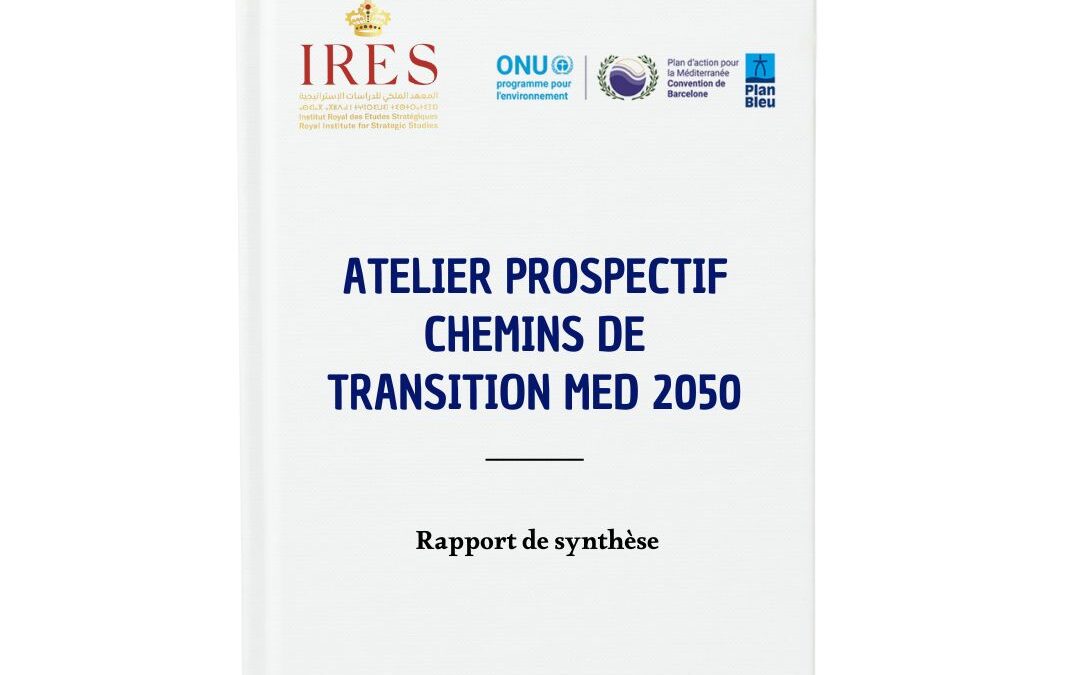On May 12th, the summary report of the foresight workshop “Transition Pathways for the Mediterranean – MED 2050” was published.
This summary note presents the outcomes of the workshop held in Tangier, Morocco, on February 4–5, 2025, highlighting experts’ perspectives on the future challenges of the Mediterranean, the prospective scenarios developed in the MED 2050 report, and the assessment of the relevance and plausibility of these scenarios in the Moroccan context.
Organized by the Royal Institute for Strategic Studies (IRES), the event brought together leading experts to explore future scenarios for the Mediterranean region and define sustainable transition strategies.
The objective was to explore, using Morocco as a case study, pathways for transitioning towards sustainable development in the Mediterranean. Morocco was chosen as the first destination for this initiative due to its strengths related to its geographic position at the maritime crossroads of the Mediterranean and Atlantic, as well as its regional leadership role in implementing sustainable development strategies. In this regard, Morocco’s progress on issues such as climate change, water management, renewable energy, and efforts related to social cohesion and human development were highlighted.
The MED 2050 report, the result of a collaboration among about one hundred experts from across the Mediterranean region, proposes six contrasting scenarios, ranging from the most optimistic to the most pessimistic, to explore different possible trajectories for the region.
The main objective of the MED 2050 report is to guide public policy decisions by highlighting risks, opportunities, and potential pathways. It aims to stimulate in-depth reflection on the challenges facing the Mediterranean and encourage decision-makers to take actions to build a more sustainable and prosperous future for the region.

